There is No Failure - Only Feedback
Interview with Richard Robinson
By Mike Cormack
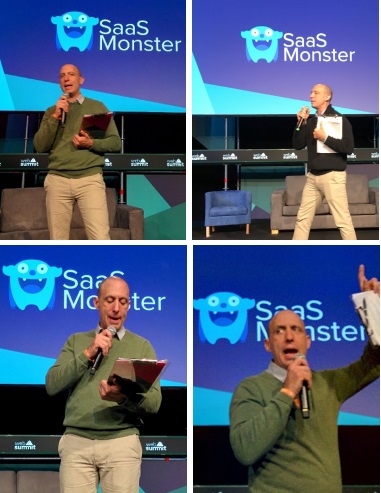 Richard Robinson was one of the first foreigners to come to China to work in the Internet sector. He has since then become a "serial entrepreneur", with a series of startups under his belt and a senior position in the Beijing tech ecosystem and overall business community as a mentor and member of the startup accelerator and of the Entrepreneur's Association. (He also writes children's books and produces and comperes standup comedy shows in what must be an extraordinarily busy life.) He spoke to Business Tianjin about his experience of early days of Chinese Internet, stepping out on his own and making time for priorities amidst the mayhem.
Richard Robinson was one of the first foreigners to come to China to work in the Internet sector. He has since then become a "serial entrepreneur", with a series of startups under his belt and a senior position in the Beijing tech ecosystem and overall business community as a mentor and member of the startup accelerator and of the Entrepreneur's Association. (He also writes children's books and produces and comperes standup comedy shows in what must be an extraordinarily busy life.) He spoke to Business Tianjin about his experience of early days of Chinese Internet, stepping out on his own and making time for priorities amidst the mayhem.
You worked and studied in a number of European countries and travelled through Africa before coming to Hong Kong then Beijing - what inspired your wanderlust and what then brought you to Asia?
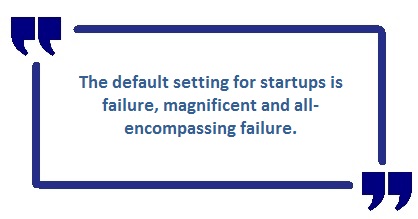 I grew up in Boston with Irish immigrant grandparents so I'm a dual citizen. But it wasn't till I was at the University of Southern California and went on an exchange program to Cambridge University in the UK that I first tasted the thrill of travel. The American whistle stop tour with a Euro-rail pass was like a gateway drug.
I grew up in Boston with Irish immigrant grandparents so I'm a dual citizen. But it wasn't till I was at the University of Southern California and went on an exchange program to Cambridge University in the UK that I first tasted the thrill of travel. The American whistle stop tour with a Euro-rail pass was like a gateway drug.
After graduating I worked my way around the world for three years.. Then in 1993 I travelled over land from Switzerland to Hong Kong via the Trans-Siberian and then to Beijing and fell in love with China. Following that I got my MBA at the Rotterdam School of Management in The Netherlands, which is where I fell in love with the Internet.
Once I got my MBA, I did a solo 4,000km bike trip through Africa from Nairobi to Cape Town as a last crazy adventure before starting my career.
Your first China-related tech job was with renren.com in 1999 - what was it all about at the time? What was the tech scene like at the time when the US Internet bubble was happening?
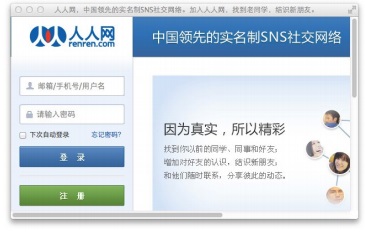 I showed up in China in 1996 to be an Internet guy but someone had forgotten to tell the Internet to show up before I got here.
I showed up in China in 1996 to be an Internet guy but someone had forgotten to tell the Internet to show up before I got here.
There was a US web development company I helped to establish in Asia and since I was young and had a voracious appetite for networking I was part of three industry groups. Through one I met the founders of the original renren.com who had just left McKinsey and were very smart and capable. GeoCities (a 'community site' which was a precursor to social networking) had become profitable, went public and was then acquired by Yahoo for US$3.6 billion so we positioned ourselves as GeoCities for China.
I came on board as the first VP and had barely fastened my seatbelt when I felt the impact from G force of the rocket ship I had just boarded. Our staff comprised of five employees and a little seed funding and within nine months we had raised US$37 million. Rupert Murdoch personally did the due diligence and ended up leading the round with his son James taking a board seat. Then renren did a reverse merger/backdoor listing on the Hong Kong Stock Exchange (where we took over a company and then became liquid through that) and just like that the company was worth US$1.6 billion.
It was thrilling, incredible, farcical, outrageous, a crazy reflection of the times during the dotcom boom. I ended up here in Beijing with the company and we expanded to the point of hiring 400 employees. I was managing a team of 75+ and an ad budget of over US$10 million and was drowning every day through my own ineptitude. The good news is that I ended compressing 5-7 years of work experience into a year and a half. The bad news was that we ended up shrinking back down to a handful of employees just nine months after the listing due to the dotcom nuclear winter. But we did at least get to exit the company as it got acquired.
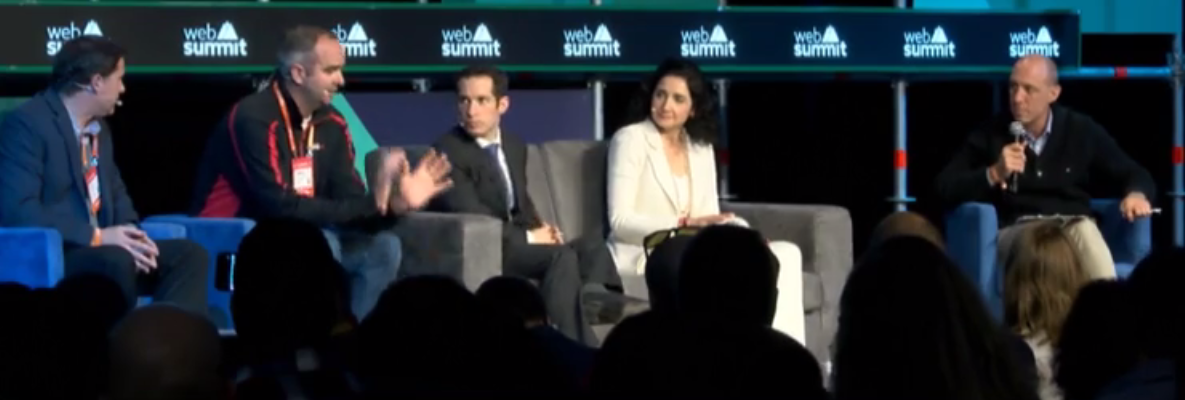 What made you take the leap with your first venture, Mobile Interactive Games?
What made you take the leap with your first venture, Mobile Interactive Games?
I found myself in Beijing after the renren sale and some travelling which took me to both Cuba and North Korea. (I was in a terrific rush to get to both countries in 2001 while they were still communist dictatorships in case they collapsed which I thought could happen any day).
My assistant at renren had a mobile phone that cost the equivalent of two months' salary and she was constantly sending text messages. Hong Kong was a weird duck in the sense that there were six telecom operators but at the time, believe it or not, it wasn't possible to send texts between all operators so no one I knew ever used it. I saw the trend clearly here in the Middle Kingdom (foreshadowing WeChat) and saw that there were opportunities to bill for premium SMS. So I started the first mobile gaming company in China that was based solely on text, so quite a bit of imagination was needed.
What were the main business lessons you derived from that first venture?
I'm covered in scabs, bruises and scar tissue from every venture and it serves as armor for me to go into the next battle, but MIG was the first company where I was the founder and CEO. The company had a good outcome as it was acquired for US$40 million in cash by a NASDAQ-listed game company, Glu Mobile, but I didn't benefit from the sale. Let's just say that there are many items in term sheets and shareholders' agreements that were much more opaque back then in 2001. It's all an opportunity to learn and improve.
 Since then you've become a serial entrepreneur, with numerous startups under your belt and mentoring 500 Startups, Chinacellerator and HAX. Is there a model or structure for start-ups to follow, or is each case individual and unique? What are the general development stages which they follow?
Since then you've become a serial entrepreneur, with numerous startups under your belt and mentoring 500 Startups, Chinacellerator and HAX. Is there a model or structure for start-ups to follow, or is each case individual and unique? What are the general development stages which they follow?
The default setting for startups is failure, magnificent and all-encompassing failure.
Steve Blank is a serial entrepreneur who heads Stanford's entrepreneurship program and he defines a startup as "a temporary organization designed to search for a repeatable and scalable business model". Startups go through three general phases: Search, Build and Grow.
In my experience, many entrepreneurs never get out of the first Search stage, which means they haven't found a repeatable and scalable business model which is basically a product or market fit that they can charge for. Simply stated, the folks at Y Combinator tell startups to "make stuff that people want" - which seems almost insultingly simple but it's also very difficult to implement.
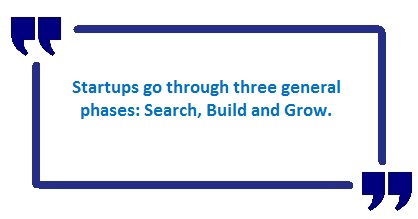
What sort of start-ups do you see on the rise just now in Beijing? What are the latest trends?
As my island of knowledge grows, so also does my ocean of ignorance. But the biggest overarching trend is that the narrative is not about copycat China but China as an innovator.
We now see WeChat being copied by Facebook and streaming services and bike sharing has exploded, but the next big thing will be something that no one will see coming until after it has arrived. The next big, Big, BIG thing will possibly be some sort of virtual reality/augmented reality service.

Can you explain what the Entrepreneur's Organization in Beijing is all about and what is your role in it?
It's the world's only peer-to-peer network meant exclusively for entrepreneurs and it has changed my life professionally and personally. Ten years ago my good friend and fellow entrepreneur Jim James and I started the Beijing chapter. Now there's a local and international chapter and the platform is approaching 100 members in total.
Looking back over 20 years in Asia, how have things changed for entrepreneurs (especially foreign entrepreneurs) in China?
China is naturally entrepreneurial so now that it has been unleashed even more extensively over the past two decades, there is certainly more competition across all industries. So there's less of an opportunity to leverage some sort of advantage from international experience or market knowledge. Huge opportunities still abound but I often say that China is a place where everything is possible, but nothing is easy. These days I'm focused more on leveraging China as an engine to create products or services to push out around the rest of the world.
 Your hobbies are very cool - writing children's book and producing/compering standup comedy. First - how do you find the time? Second - do you ever feel like doing one or both of them full-time?
Your hobbies are very cool - writing children's book and producing/compering standup comedy. First - how do you find the time? Second - do you ever feel like doing one or both of them full-time?
There's always time for priorities. I've harnessed some of my entrepreneurial experience to leverage people and processes so that I'm working on these things and not getting bogged down by being deep inside into some of the details and tasks that can be better outsourced and/or put into a system.
If you could go back 10 or 20 years and give yourself some advice, what would you say?
All the big startups that I invested in failed. Apple made a weird comeback and companies like Facebook and Amazon have become successful, Donald Trump is now president and Cubs won the World Series.
I would now go back and tell myself not to answer this question. Or I would just say instead that there is no failure - only feedback. It's all about trying, failing, learning, then rinsing and repeating.
--- END ---